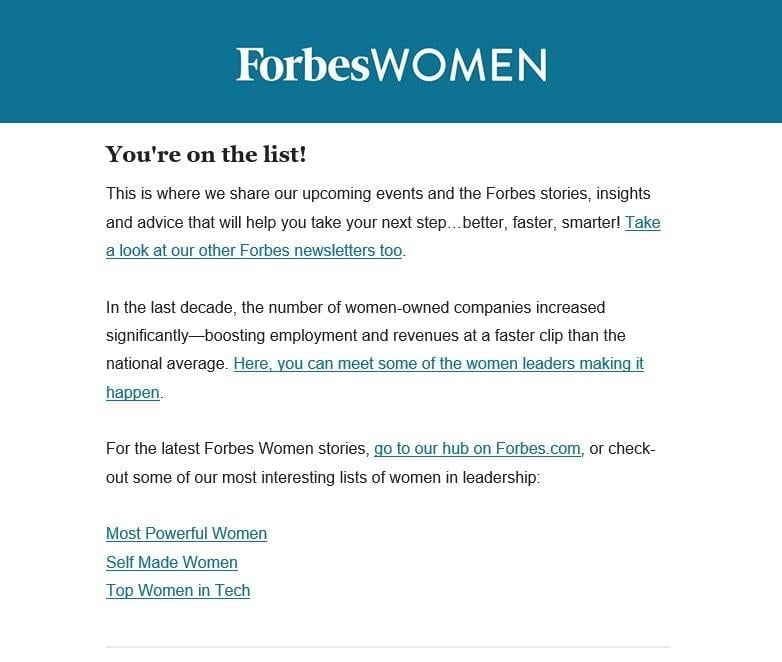20 Top Ways For Deciding On Email List Sellers
20 Top Ways For Deciding On Email List Sellers
Blog Article
What Should I Consider Before Purchasing An Email List For A Pathologist Email List?
In order to make sure that the email lists of pathologists you purchase are accurate legal and suitable for your marketing goals There are a number of important aspects you need to take into consideration. These are the most crucial elements to be considered: 1. Data Quality and Accuracy
Source of Data: Confirm that the email list provider collects its data from reliable sources such as professional directories, health databases or verified opt-in contact. This will ensure that the email addresses are current and accurate.
Verification process: Check whether the list has been verified. Providers should have a system for cleaning and validating emails, including inactive or incorrect addresses. Good quality lists have low bounce rates, and also result in better deliverability.
Segmentation and Customization Look for lists that offer segments, for example by locations, subspecialties (e.g. Forensic pathology, clinical pathology, forensic pathology), years of experience, or affiliations with hospitals. Customization allows for more targeted marketing, boosting your odds of reaching the right audience.
2. Legal Regulations
Data Privacy Regulations Ensure that your email list is compliant with all applicable data privacy laws including the General Regulations on Data Protection in Europe or the California Consumer Privacy Acts in the U.S. The data of pathologists should be gathered and used in a legally-compliant manner, respecting individual privacy rights.
CANSPAM Act - If you are seeking U.S. Pathologists or live in the U.S.A. Check to see if your email list is compliant with the CANSPAM Act. This law governs commercial emails. If you do not conform, you could get penalized a significant amount.
Verify that all emails are signed up with the correct opt-in consent. This will ensure that the pathologists have opted-in to receiving informational material, which will help in decreasing complaints about spam and preserving the image of your business.
3. Provider Reputation
Credibility Of The Provider Make sure you choose a credible provider who is known for providing accurate email lists that conform to. You can determine the quality of their service by reading reviews, requesting testimonials and checking references from other health marketing professionals.
Transparency. The provider needs to be transparent in the manner they gather and update their data. Do not choose a provider that does not provide the source of their emails.
Customer Support: Choose a provider that offers strong customer service in case you need help with the list or encounter technical difficulties.
4. Costs and Return on Investment (ROI).
Pricing Models: Examine different pricing models - whether they are pay-per-contact, or a flat rate on the entire list. Examine whether the price is in line with the budget for marketing as well as the possible return on investment (ROI).
Refund Policy: A few providers offer replacement or refund guarantees when a substantial portion of emails are invalid or don't meet promises of quality. Check if the service has clearly defined refund or replacement policy.
Value for Money - Check the cost of a list against its quality, degree of segmentation and other offerings (e.g. Campaign management or CRM Integration). The list with the lowest price may not be the most efficient if it has poor deliverability.
5. Use and Ownership of Data
Be clear about your usage and licensing rights. Do you wish to purchase the list once, or do you want to use it in ongoing campaigns? Certain providers offer licenses for single-use some others offer unlimited use, which can be beneficial for longer-term outreach initiatives.
Exclusive vs. Lists shared: Identify if you are the only buyer on the email list or if it is shared with other buyers. Exclusive lists tend to be more efficient because the contacts don't get constantly bombarded with messages from different sources.
6. Data Format and Integration
Compatibility With CRM/Email Tools: Make sure that your email list is compatible with the CRM or email marketing software you already use. The data should be in a standard format like CSV, Excel or other formats that can be easily imported.
Data Segmentation: Determine the ease to segment and sort the list once it is integrated. Segmentation that is effective allows for personal mailers, which generally result in higher open and response rates.
7. Ethical Questions
Relevance of Your Message: Pathologists are highly specialized professionals. Be sure that the product, service or message you send is pertinent to your target audience's requirements. Inadequate information could damage your image as a brand and could lead to complaints about spam.
Spam Reports can result due to sending too many emails or unrequested content. Plan carefully and use the checklist in a responsible manner when planning your campaigns to ensure that you don't damage the reputation of the sender.
Also, you can read our conclusion.
Purchasing a pathologist email list can be an effective marketing tool when done correctly. Prioritize data compliance, the provider's reputation, and the quality of the data to maximize your possibilities. Always ensure that your list is crafted to your particular needs. Also, adhere to the data privacy regulations as well as ethical practices in marketing. Think about these aspects to design an effective and efficient email campaign targeted at pathologists. Check out the top rated pathologist email list for more info.
What Are The Factors I Should Consider Before Purchasing An Oncologist's List?
You should consider the following elements prior to purchasing an email list of oncologists. These can aid you in ensuring that the list you purchase is a good quality, targeted and legally compliant. The following are the main considerations: 1. Data Quality & Accuracy
Source of Data: Check that the data is coming from trustworthy and reliable sources like medical directories, professional associations or healthcare databases. Do not use lists from unreliable or unreliable sources. They could contain incorrect or outdated information.
Verification process: The list provider should have in place an effective validation process to ensure that emails are active, valid and accurate. The list should be updated regularly and wiped clean to eliminate duplicate, invalid or inaccurate contacts. This can improve the quality of delivery.
Segmentation. A quality oncologist's email list should be segmented. Being able to filter the list by subspecialties (e.g., pediatric oncology, surgical oncology, hematology-oncology), geographic location, years of experience, or institution allows for more targeted outreach, increasing the likelihood of engagement.
2. Legal Regulations
Data Privacy Regulations - Ensure that the email lists adhere to privacy laws pertaining to data including the General Data Protection Regulation in Europe and the California Consumer Privacy Act in the U.S.A. Email addresses need to be gathered legally and processed with respect to privacy and consent.
CANSPAM Act Compliance - For campaigns in the United States, check whether the mailing list is in compliance with CANSPAM Act. The CANSPAM Act regulates commercial emails. It is recommended to include an opt-out link in your email, use accurate subject lines and ensure that your recipients are not misled. Infractions could result in fines or harm to your reputation.
Opt-In Consent: Confirm that the list of email addresses collected via opt-in consent. Oncologists should have opted-in to receive marketing communications in order to comply with privacy laws and lessening the chance of spam complaints or legal issues.
3. Provider Reputation
Reputable company The best choice for your list from a company that is reputable within the business. To confirm their legitimacy, look up their past records reviews, go through testimonials, or case studies. Established providers usually provide more accurate and legally reliable information.
Transparency. The provider should provide information about the source of their data as well as the frequency with which they are updated and what methods of verification they employ. Lack of transparency can be a red flag and may signal poor data quality.
Customer Support - Pick a company that offers responsive support to you in case you require assistance in integrating, segmenting, or complying with regulations.
4. Cost and ROI
Understand the structure of pricing, including whether it is based upon the number of contact or whether it is a one-time charge or a subscription. Think about how your marketing budget and return on investment (ROI) will be affected by the price.
Refund and Replacement Policy: A reputable company will offer a return policy or replacement policy for emails that are invalid or outdated email addresses. To ensure your safety it is essential to know the policies prior to buying.
Do not just concentrate on price. The list that is less expensive may be tempting but if it ends in a poor deliverability or a poor engagement, it could ultimately harm your campaign. Make sure the data is current and accurate.
5. Ownership and use of data
If you're unsure, ask if it is an all-purpose list or if ownership permits for continued use. If you're planning to launch several campaigns, purchasing the list will provide you with more flexibility and a longer-term benefit.
Exclusive vs. Shared Lists. Check if the list you've got is exclusive or marketed to several buyers. Exclusive lists tends to be more useful because they decrease boredom in the audience and increase engagement.
6. Data Integration and Format
CRM Compatibility: Check that the list you get is able to be imported into the Customer Relationship Manager (CRM) or email marketing system, or any other software. The list should be presented in a standard format such as CSV or Excel for seamless integration.
Simple segmentation: The CRM list should be simple to segment. Being able to quickly filter by criteria like oncology subspecialty or geographical location can aid in tailoring your campaigns more effectively.
7. Ethical Considerations
Relevance of messages Oncologists, being specialists are extremely busy. Make sure your message is relevant to their needs or activities, such as medical devices, continuing education or pharmaceutical advances. A poorly-crafted email can harm your reputation and result in low engagement.
Avoiding Spam Beware of over-emailing or sending unwelcome messages which could lead to spam complaints. To keep your audience engaged, send emails regularly.
Conclusion
When purchasing an oncologist mailing list, pay attention to data accuracy and legal conformity as well as the reputation of the vendor. Make sure the list has been targeted and customized to your audience. By considering these factors, you can create an efficient, consistent outreach plan that is effective, maximizes engagement and delivers strong results. Check out the recommended oncologist email list for blog info.